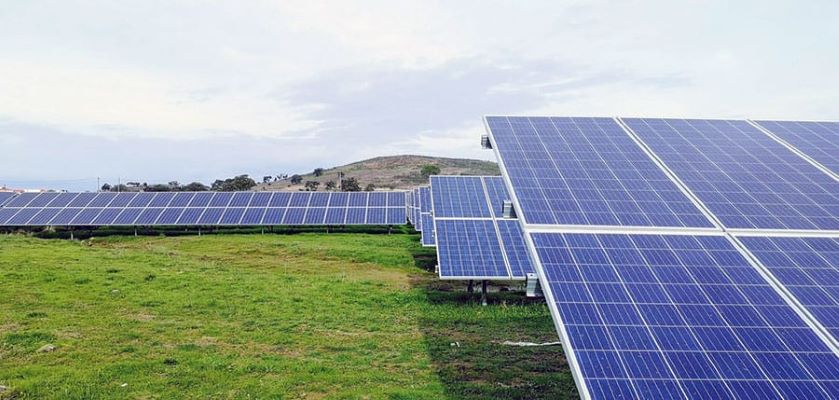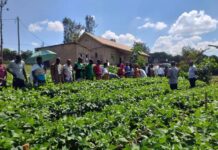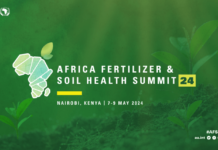Farmers in Ghana are using solar powered cold storage to keep freshly harvested fruit and vegetables cool.
AkoFresh, the company behind the innovation, says countries in Sub-Saharan Africa lose more than a third of their harvested food, mostly because of inefficient supply chains.
The solar cold stores will boost seasonal income for farmers by more than $10 million and cut greenhouse gas emissions by 15%, AkoFresh says.
Finding ways to store freshly harvested fruit and vegetables is a big problem for smallholder farmers in Ghana in West Africa.
Produce can rot quickly in outdoor temperatures, and transporting it to market isn’t an option for many small-scale farmers.
Almost 90% of smallholder farmers in Ghana sell their produce at the farm gate, news site Business Ghana added.
AkoFresh is now providing solar-powered refrigerated storage that it says extends the shelf life of perishable crops from about 5 days to 21 days.
Farmers can rent a space in the cold store for a daily fee of $0.30 per 20 kilogram crate of produce, or take up a weekly subscription. They can also pay for the cold storage with crops instead of cash.
To help farmers reduce food losses and sell their produce at competitive prices, the solar powered cold storage service also includes a mobile app that connects them to food aggregators. These are organisations that consolidate and distribute agricultural produce, explains Ghana state-owned food company NAFCO.
AkoFresh says it wants to cut by at least half the volumes of crops lost after harvest across 1o communities in the country over the next 5-10 years.
This will boost seasonal income for farmers by more than $10 million, as well as reduce greenhouse gas emissions by 15%, it says.
About a third of all food produced globally – around 1.3 billion tonnes – is wasted, estimates the United Nations Food and Agriculture Organisation (FAO), a specialist agency that works to eliminate hunger, food insecurity and malnutrition.
The company’s solar powered cold storage unit includes cold room panels, sensors, a condensing unit, and an evaporator.
Using solar power means the refrigerated unit doesn’t need to be connected to an electricity grid and is “net positive to the environment”.
“Every solar cold room we set up is reducing up to 16.5 tonnes of CO2 emissions each month,” AkoFresh says.
As well as keeping crops cool, the solar powered cold storage unit can be used to store fresh fish and vaccines.
Local communities can also charge their reusable lamps and mobile devices at the solar powered cold storage units, helping to tackle energy poverty.
Future plans for AkoFresh include investing 1% of the service charge for each crate of crop stored into educational materials for the children of farmers.
The company hopes to expand to other five districts in Ghana and two more African countries in the next five years, allowing it to reach more than 15 000 smallholder farmers and traders.
AkoFresh was founded by entrepreneur Mathias Charles Yabe, and it is one of 14 companies supported through the #GenerationRestoration Youth Challenge. The solar powered cold storage initiative promotes youth-led solutions to conserve and restore ecosystems, in response to nature loss and climate change.









